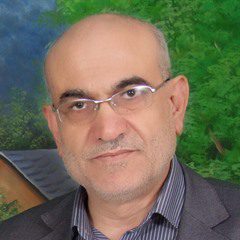The Gulf crisis has entered its fourth month without any indications of it ending soon. While Qatar has prepared itself for a long crisis, both on the economic and political level, and has proven that it is capable of withstanding it, the other side is in a state of fluctuation. Meanwhile the fierce media war is ongoing between the two sides.
While the confrontation with Iran is one of the main issues of the Gulf conflict, it is clear that Iran is gaining the most from the crisis, either in the form of its new budding relationships or, more importantly, in the form of everyone’s distraction with the crisis, leaving the Syrian and Iraqi (as well as the Yemeni) arenas open to its tampering. It is worth noting that Syria in particular is the cornerstone for Iran’s expansion.
It is true that Syria will no longer be an Iranian state, as it was before the revolution, and Iraq will not remain under the control of Soleimani’s militias’ control. It will engage in another battle with the Kurds, while Daesh will remain a threat, albeit without any land to control. However, the current situation indicates that Iran has gained a lot from the crisis, especially since Qatar was the most cooperative with Saudi Arabia in facing this project and its most important factor in Syria.
Read: Cargo line between Qatar and Turkey through Iran opened
With regards to Yemen, it has entered a state of fluctuation, after confirming what was already known, i.e. the Houthis can survive for a long time. It is in this state given the fact that the suspicions surrounding the Islah Party due to its affiliation to the so-called “political Islam” trend, which is preventing the alliance’s cooperation with it in the context of the conflict. It also seems difficult to rehabilitate the deposed president in order to engage in a battle with the Houthis, although his ability to do so isn’t confirmed.
As for the terrorism issue, it is nothing more than a secondary issue in the crisis; Qatar does not support terrorism and the revolutions are no longer in existence in order for Qatar to be punished for supporting them. Moreover, Syria has become a regional confrontation and is no longer in the context of the Arab Spring in terms of its original concept.
Of course there are sensitivities that are not being announced that are the real reason behind the crisis, but they are easily overcome. Perhaps the biggest piece of evidence refuting the issue of Iran as the main issue of the crisis is the presence of an Arab party supporting Bashar Al-Assad’s regime within the alliance opposed to Qatar, i.e. Egypt. Of course Egypt is not a marginal party because everyone knows that if it were to announce its position on the confrontation against Iran, it would completely change the balances of power, and Iran would have realised the absurdity of the confrontation and would lean towards compromise and wisdom.
Read more: Timeline of the arab rift with Qatar
I will say once again that the crisis stems from sensitivities, the majority of which are not declared, but they are easily overcome, without adhering to the stipulations dictated by the list of 13 demands. Doha and Riyadh can agree to a position that would serve both countries as well as the general Arab situation without the need to make any concessions to the Americans or the Israelis in the context of their support of meaningless negotiations that everyone knows aim to open a door to free normalisation and not achieve a settlement or solution.
This article first appeared in Arabic in Al-Arab on 6 September 2017.
The views expressed in this article belong to the author and do not necessarily reflect the editorial policy of Middle East Monitor.

![Protesters hold placards during a protest against the Saudi-UAE led aggression on Qatar on 17 June 2017 [Isabel Infantes/Anadolu Agency]](https://i0.wp.com/www.middleeastmonitor.com/wp-content/uploads/2017/06/20170617_2_24286518_23242363.jpg?fit=920%2C613&ssl=1)







